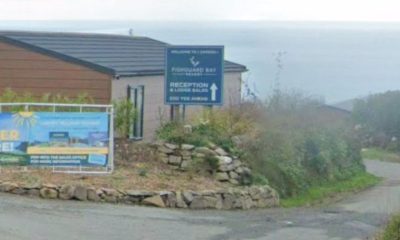Health
High level of COVID-19 cases is impacting health service provision locally
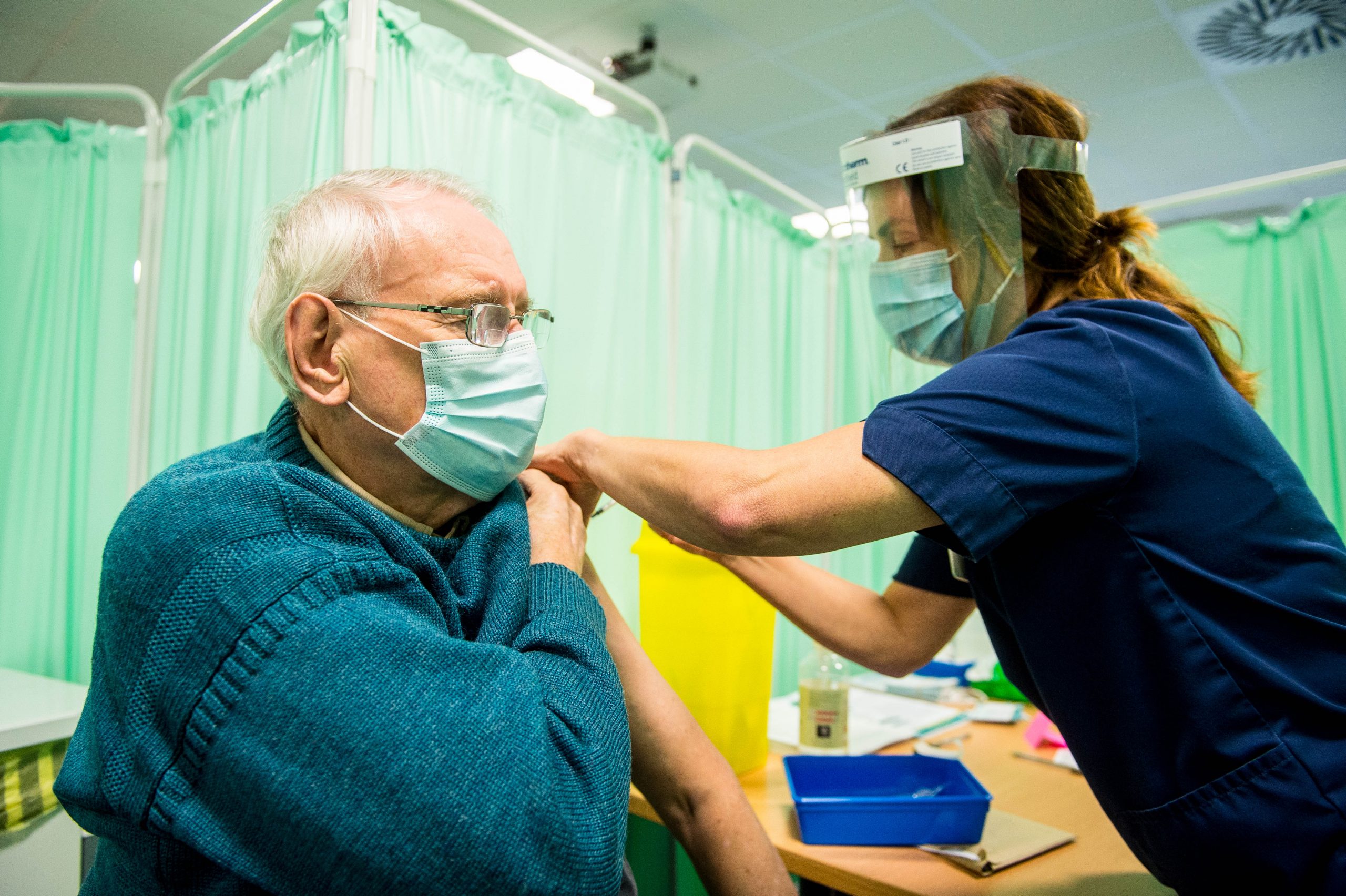
HYWEL DDA Health Board has said that the high number of COVID-19 cases locally is a concern and is impacting on our public services across the Hywel Dda area. This is despite While the link between coronavirus infections and serious illness is weakening.
Public bodies have been making efforts this week to reassure that multi-agency partners are continually working together across the region to protect our communities, local public services and the NHS.
There have been 300 new coronavirus cases recorded in the Hywel Dda health board area according to the latest figures. Public Health Wales (PHW) data shows there were 199 new cases in Carmarthenshire, 63 in Pembrokeshire and 38 in Ceredigion since the last report.
The total number of cases across the three counties now stands at 26,930 – 16,620 in Carmarthenshire, 6,742 in Pembrokeshire and 3,568 in Ceredigion. One new COVID-19 related death has been recorded in the Hywel Dda area since the last report, with the total reaching 503 throughout the pandemic.
In total 2,618 new cases of coronavirus have been reported across Wales on Friday (Sept 17), bringing the national total to 320,099 cases.
Steve Moore, health board Chief Executive reported that there are 66 people in our hospitals with confirmed COVID, ten of these are in Intensive Care. He stated that about half of those in ICU have been vaccinated and added that the clinical view is that patients respond more quickly and favourably if they are vaccinated. All COVID deaths in the past few weeks have been of unvaccinated people.
Infection rates are coming down slightly but are still very high, with 506 cases per 100,000 people in Carmarthenshire (the 2nd highest level in Wales) and 293 cases per 100,000 in Pembrokeshire. There is a test positivity rate of 16% across the HB area. It is thought that cases peaked on 6th September, though the full impact of schools going back may not yet have been seen.
Hywel Dda University Health Board, Public Health Wales and Carmarthenshire, Ceredigion and Pembrokeshire local authorities together regularly monitor, review and agree actions needed to respond and manage the ongoing pandemic. This is co-ordinated through the Hywel Dda Regional Incident Management Team, established at the beginning of the pandemic, and continues to be further supported by county specific teams.
The Health Board put out a statement on Friday (Sept 17), saying: “Communicating regularly with our public across the region has been a key focus in our response to the pandemic. Currently, this has involved Community Development Outreach workers engaging with minority ethnic groups within the community”; and supporting youth services and groups in messaging to young people about how to keep safe and encourage vaccination.
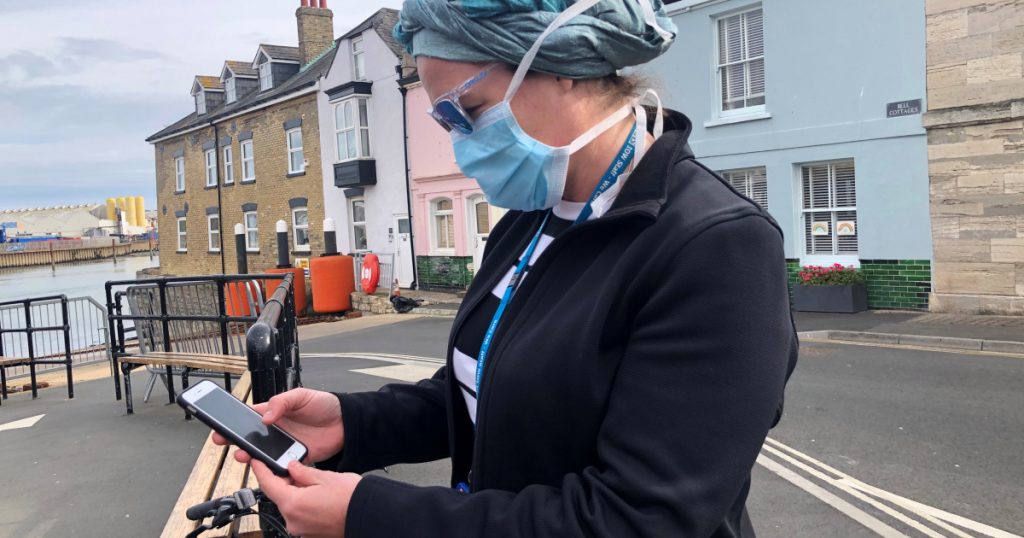
“Local public sector leaders have come together to acknowledge the sacrifices people have made to keep our communities safe and to appeal to the public for support during the coming days and weeks.
Maria Battle, Chair of Hywel Dda UHB, continued: “The future does bring a degree of uncertainty, such as the roll out of the flu vaccine alongside COVID-19 booster jabs. What is certain however is the commitment of the health board and our partners to be as prepared as possible. The health board’s comprehensive recovery plan outlines, first and foremost, how we recover from the pandemic: how we support our staff to recover after what has been an exhausting year and a half, and how we lay the foundations to recover our services and support our communities.”
Temporary Chief Constable of Dyfed-Powys Police, Claire Parmenter, said: “With the uncertainties we face locally at the moment, we want everyone living, working and visiting this area to keep each other as safe as possible, so please remember the protective behaviours that will help ensure this for us all.
“We want it to be as easy as possible for people to get in touch when they need us. So save your time and report online – as you can now report non-emergency crimes and incidents online quickly and easily on our website
“This includes reports of domestic abuse, crimes, antisocial behaviour, road traffic incidents and collisions, and more. The online reporting isn’t replacing 101. But it’s important to promote the availability of our online services to those who would prefer to use this option, and it does mean we can answer calls from those who cannot contact us online quicker.
“We continue to work with our partners in a coordinated approach to serve in the best interests of our communities at this challenging time.”
Cllr Emlyn Dole, Leader of Carmarthenshire County Council, said: “Carmarthenshire currently has a very high number of COVID-19 cases and is one of the worst affected areas of Wales at the moment. This is putting huge pressure on our services and the NHS.
“This virus does not discriminate – it is affecting people young and old. I would appeal to anyone who has not yet had the vaccine to go and get it as soon as possible. We should also remain vigilant when socialising and follow the measures in place to protect us.”
Councillor Ellen ap Gwynn, Leader of Ceredigion County Council, said “Although Wales is now in Alert Level 0, COVID-19 is still spreading in our communities. We must all continue to consider how we keep each other safe and reduce the risk of spreading the coronavirus. It remains good practice to maintain social distancing and to limit our contacts as much as possible.
“We urge all Ceredigion residents aged 16 and above to ensure that they take up the offer of both doses of the COVID-19 vaccination. It’s easy to go and get the vaccine with walk-in clinics available. Having both doses will not only protect you, but also your family, friends and colleagues. We also look forward to 12-15 year-olds becoming protected through vaccination.”
David Simpson, Leader of Pembrokeshire County Council, said: “It has been easy to think we are through the worst of this pandemic, but the recent weeks have been a reminder how we must all continue to tackle this issue collectively. These past 18 months have been very tough and lockdown restrictions have changed our lives.
“In the past few weeks we have experienced a high volume of visitors to the county which can at times add additional pressures on our services.
“I cannot emphasise enough that this pandemic has not ended. Covid-19 has not gone away and we must all continue to work together and redouble our efforts, particularly as we head into autumn and winter.
“Please continue to socially distance where possible, wear face coverings where required, continue regular handwashing and choose outdoor activities or meet people outdoors over indoors.
“If you have COVID-19 symptoms, get tested. Don’t risk spreading this virus. These are simple actions that we can all take to help. They really do make a difference.
“Our front-line teams are working hard to support our communities and ensure we deliver key services. I would ask for your support to help us to keep Pembrokeshire open and welcoming to all.”
Over half a million doses of vaccine have been delivered in total with 91% of the eligible population having had at least a single dose.
A 3rd dose is soon to be offered to a well-defined group of immunocompromised people. The single dose vaccine for 12-15 year olds will be given out at Mass Vaccination Centres (MVCs) during evenings and weekends starting in early October.
From 27th September booster doses will be given with GPs delivering them to care homes, and the MVCs will be used for everyone else. GPs will be concentrating on administering flu vaccines.
Cases of RSV which can be serious in children under 5 are expected to peak in late October/early November and the HB has been asked to prepare for a 50% increase in cases.
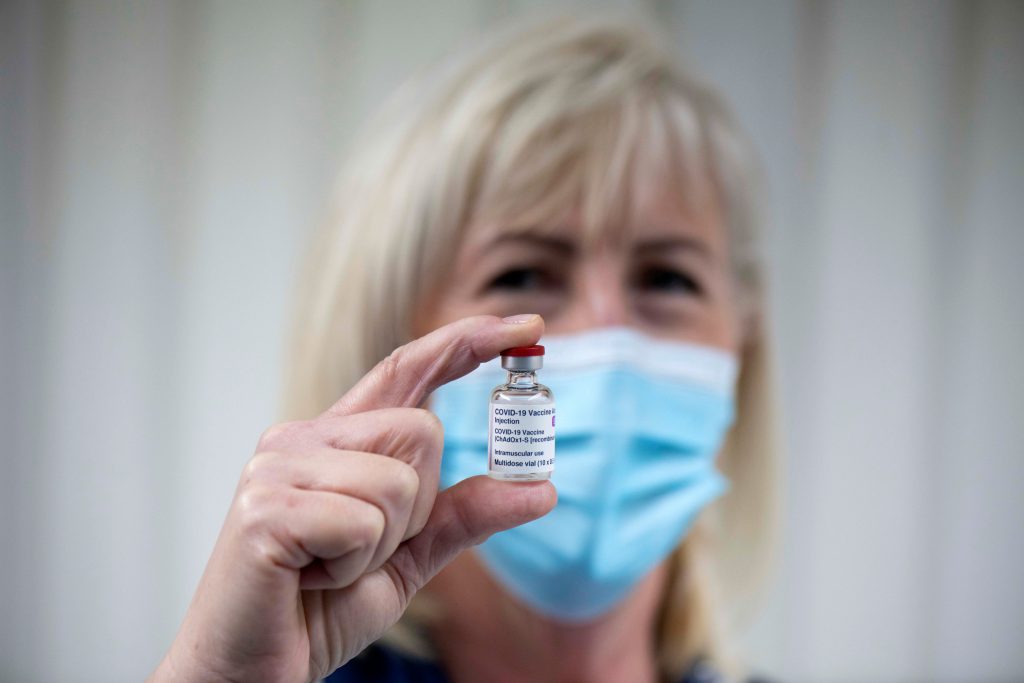
What local Heath Board is doing?
Vaccination – Hywel Dda University Health Board, Public Health Wales and Carmarthenshire, Ceredigion and Pembrokeshire local authorities together regularly monitor, review and agree actions needed to respond and manage the ongoing pandemic. This is co-ordinated through the Hywel Dda Regional Incident Management Team, established at the beginning of the pandemic, and continues to be further supported by county specific teams.
Health care – Board says it has taken steps to ensure it can care for those most critically ill in our hospitals by postponing some operations temporarily and realigning our workforce; has further limited visiting in areas affected by COVID-19.
Supporting communities – through the local county incident management teams (IMTs), local authorities are providing guidance and support to schools following the recent return of pupils.
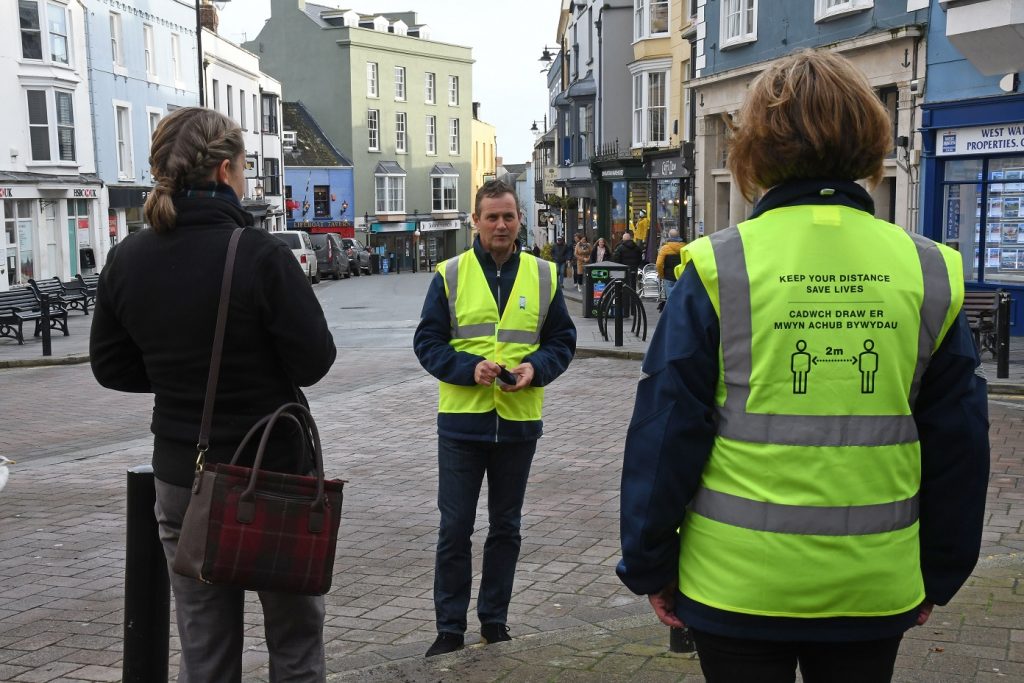
Health
Doctors to enter pay negotiations with the Welsh Government
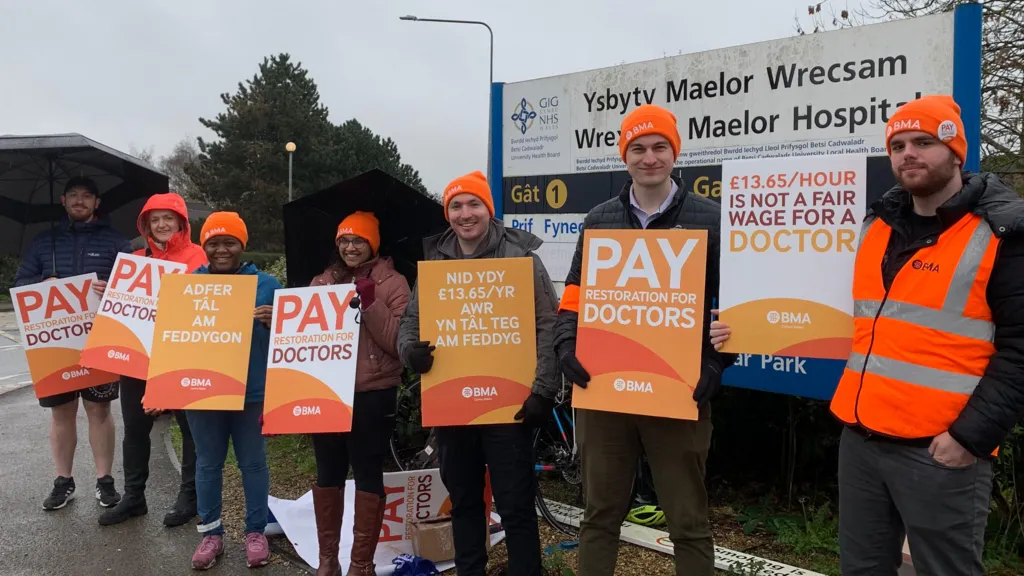
BMA CYMRU Wales has suspended forthcoming industrial action for Consultants and SAS doctors following a constructive meeting with the Welsh government to resolve its pay disputes.
As a result of sustained pressure, including three rounds of industrial action by junior doctors in Wales, the Welsh Government has made a significant proposal to form the basis of talks to end the pay disputes with all secondary care doctors including Consultants, SAS and Junior doctors.
Since the meeting last week, the committees representing doctors from all three branches of practice have voted to enter pay negotiations based on this proposal.
The planned 48-hour strike by Consultants and SAS doctors due to take place from 16 April will now be suspended.
Junior doctors have paused plans to announce more strike dates whilst they enter negotiations with the Welsh Government.
The Welsh junior doctors committee, Welsh SAS committee and Welsh consultants committee will now each engage in pay negotiations, with the aim of reaching deals which can be taken separately to their respective members.
Dr Oba Babs Osibodu and Dr Peter Fahey co-chairs of the BMA’s Welsh Junior doctors Committee said:
“This is a significant step forward. It is sad that we had to take industrial action to get here, but we are proud of members for demonstrating their resolve in pursuit of a fair deal for the profession.
“Whilst we are optimistic and hope to quickly resolve our dispute, we remain steadfast in achieving pay restoration. Until we reach a deal, nothing is off the table.
“We will continue to work hard to reach an offer that is credible to put to members who will ultimately have the final say.”
Dr Stephen Kelly, chair of BMA Cymru Wales’ Consultants committee said:
“The Welsh Government’s recent efforts to reach an end to the pay dispute are encouraging and so we have called off our planned strike for now whilst we allow time and space for negotiations to take place.
“We’re hopeful that we can reach a deal that sufficiently addresses years of erosion to our pay to help retain senior doctors in Wales but remain ready to strike if we’re not able to do so during negotiations.”
Dr Ali Nazir, chair of BMA Cymru Wales’ SAS doctor committee said:
“As a committee, we felt that this latest development goes someway to understanding the strength of feeling of our members. We will work hard to reach a settlement that sufficiently meets the expectation of our colleagues who have faced real terms pay cuts of up to a third since 2008/9.”
In August last year, the BMA’s committees representing secondary care doctors in Wales voted to enter into separate trade disputes with the Welsh Government after being offered another below inflation pay uplift of just 5% for the 23/24 financial year. SAS doctors on some contracts were offered as little as 1.5%. This was the lowest pay offer any government in the UK offered and less than the DDRB, the pay review body for doctors and dentists, recommended last year.
As part of their disputes, SAS doctors, consultants and junior doctors carried out successful ballots for industrial action. Since then, junior doctors have taken part in 10 days of industrial action since January this year.
Health
BMA pay disputes – Junior Doctors, Consultants and Specialist Doctors

THE WELSH Government and BMA Wales’ three national committees representing consultants, SAS doctors and junior doctors have today agreed to formal negotiations about pay.
Planned industrial action will be suspended during the negotiations.
A mandate is being developed for the talks with all three BMA branches of practice with the aim of resolving the disputes over pay for 2023-24.
In the context of the most challenging financial position the Welsh Government has faced since devolution, a significant amount of work has been undertaken to identify funding to support the negotiations.
First Minister Vaughan Gething said: “We recognise the strength of feeling among BMA members and that industrial action is never taken lightly.
“This is a government that listens and engages to find solutions. I prioritised a meeting with the BMA directly alongside the Cabinet Secretary for Health to reinforce our commitment to that partnership approach.
“We currently face the most severe financial situation in the devolution era which makes our task far harder. Despite this backdrop, we have worked to identify a way forward that I hope will lead to the successful resolution of this dispute and ensure that doctors can return to work in NHS Wales.”
Cabinet Secretary for Health Eluned Morgan added: “Even in these very challenging circumstances, we have worked in social partnership with the BMA and NHS to maintain patent safety during industrial action.
“But the strikes have been very disruptive to the delivery of NHS services – none of us want to see doctors on strike. I am pleased the three BMA committees have agreed to pause further industrial action and begin formal talks with Welsh Government and hope we can bring an end to this dispute.”
Health
NHS dental charges in Wales to increase from April
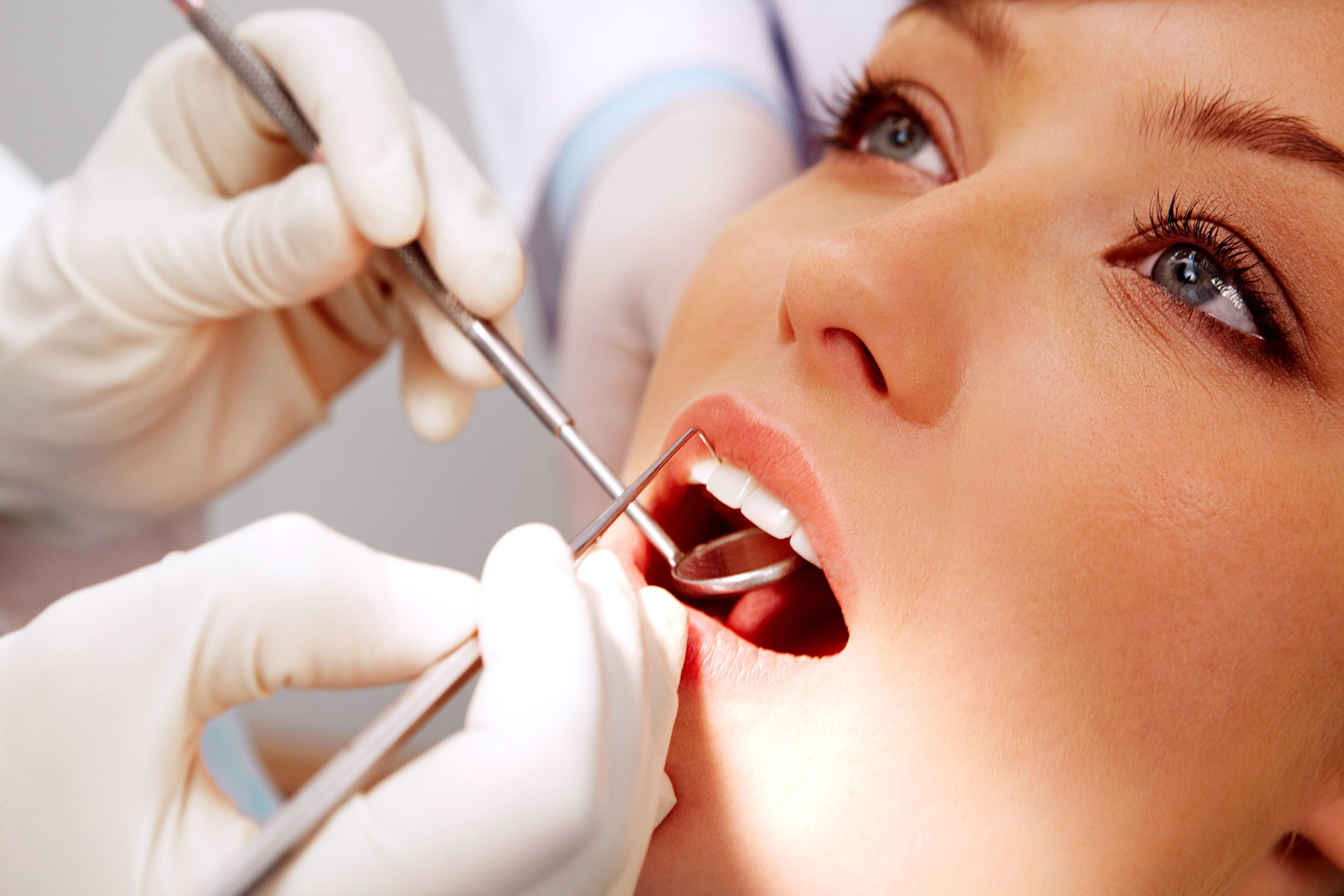
THE COST of NHS dental treatment in Wales will increase from 1 April 2024.
The increase in dental charges is the first since April 2020 and are overall still lower than in England. Any revenue generated from the increased charges will be re-invested back into NHS dentistry services.
From April 2024, the three standard charges will increase to between £20.00 and £260.00 depending on the treatment required, and urgent treatment will increase to £30.00.
Around 50% of people receive NHS dental treatment for free in Wales. Those eligible for free treatment include children under 18 or those aged 18 and in full time education, pregnant women or those who have had a baby within the 12 months of treatment starting, anyone who has dentistry treatment carried out in a hospital or people on certain benefits.
Additionally, the low-income scheme provides full or partial help with health costs, depending on individual circumstances.
Despite pressure on budgets the Welsh Government has increased investment for dentistry, with funding £27 million higher than it was in 2018 to 2019. Included within this increase is an additional £2 million a year to address local access issues.
Changes to the dentistry contract in Wales include a requirement for NHS practices to see new patients. Since this was introduce in April 2022, 312,000 people who couldn’t get an appointment before have now received NHS dental treatment.
Cabinet Secretary for Health and Social Care, Eluned Morgan, said: “Because of the extreme pressure on our budget we have had to consider if additional funding should be raised by increasing dentistry charges.
“This is the first increase we have made to dentistry charges since 2020. Around half of patients don’t pay for their NHS dental treatment and we will continue to protect those that are least able to afford to pay.
“It is vital we all keep our teeth and gums healthy. This is why we are working to make it easier for people to see an NHS dentist by increasing the number of new NHS places and helping dentists to focus on those who need help by changing how often we see a dentist for routine appointments.”
Commenting on the announcement Russell George MS, Welsh Conservative Shadow Health Minister said: “Vaughan Gething’s arrogant choice to hike up dental charges for the people Wales, rather than cut his Labour Government’s wasteful spending is wrong.
“All standard charges are being increased for dental services by the Labour Welsh Government, including for urgent treatment, which will add to cost-of-living pressures.
“While Welsh Conservatives agree that dental services require greater investment after years of Labour underfunding them, ministers should look at cutting vanity projects like their plans to create more politicians before passing on the cost to patients.”
-

 Business3 days ago
Business3 days agoBluestone National Park Resort payments expected to end
-

 Community5 days ago
Community5 days agoThe Harbourmaster: Special rail excursion draws crowds to Milford Haven
-

 News4 days ago
News4 days agoDragon LNG ‘monitoring’ scrap car blaze in Waterston
-

 News4 days ago
News4 days agoSearch for Luke, 19, reported missing in the Pembroke Dock area, continuing
-

 News1 day ago
News1 day agoSearch for missing teenager Luke continues at Pembroke Dock
-

 News6 days ago
News6 days agoMajor search in the area of The Cleddau Bridge and Hobbs Point
-

 Crime2 days ago
Crime2 days agoEstate agents admit health and safety failings following fatal market incident
-

 News2 days ago
News2 days agoMan jailed after scarring police officer in Narberth altercation

















